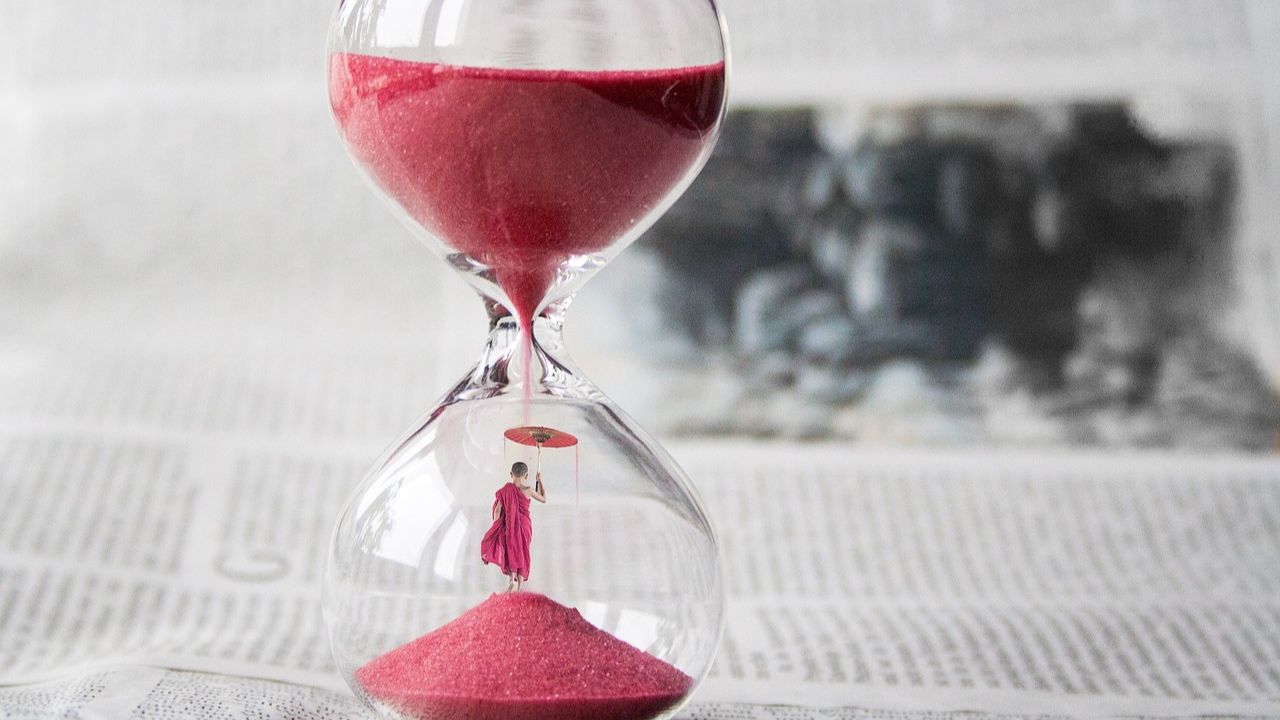How to bend time for more energy
Jul 27, 2023
Bending time to get more energy: sounds magical, doesn’t it?
In reality, the how is quite simple and ordinary. But the adoption of it extraordinary in that many don’t or won't do it. Those that do see big differences in how they experience their day and move forward in their desires.
An important part of getting and sustaining energy is keeping a steady pace despite life's disruptions. In the story of the turtle and the hare, the hare gets way ahead at first, using all he’s got, then goes to sleep for one reason or another, only to awake surprised to see the turtle ahead, reaching his destination.
The message here isn’t that we shouldn’t sleep, nap, or stop to take things in. In fact, one could argue that the turtle was doing that all the way to his end goal. The message here is to intentionally build in the recharge time (whether it’s sleep, nourish, connect, or play) and not deplete ourselves to the point that we wake up losing momentum, trying to remember where we were headed and why. That feeling of discombobulation doesn’t allow for a restful break, causing us to lean into the more artificial, unsustainable means. We end up dreading the day ahead of us.
Pacing matters.
It matters for creativity, your sanity, your nervous system, managing stress and monkey wrenches, and for cooperation and collaboration by your loved ones.
It matters even more if you identify as someone who distracts easily and yearns to get in flow. Pacing creates the foundation and anchor to stay in charge when unexpected and out-of-the-norm things happen, and increases your ability to be present in one thing at a time, without running out of time.
Pacing is helped by scheduling things into your calendar the way you schedule your doctors appointments and flights. Even if you’re late to everything else, you’re not late for those because you take them more seriously… because otherwise you’d miss them. Which indicates that you already know how to pace.
How to begin and what to think about
- Your deepest values and priorities. Take the things on your to-do list that reflect what's truly important to you and schedule them in your calendar. They're most likely the ones you keep putting off. Do not wait until you see what time you have left over. Put them in and account for them as if you’re catching a flight. Because in essence you are: your flight.
- The busy activities that burn you out. Put them all in your calendar. Schedule them in and see how much space they take up, and where in your day you allow them to go. Notice your physical reaction to them. Remember that you get to move them around, shrink, or drop them.
- Everything else in between the two. Put them in your calendar. Feel into your choices.
Assign a color to each of these categories so you can easily see where you spend your time and energy. Notice how it feels in your body. You’ll know why you feel the way you do.
What I do before going to bed...
I look at my calendar for the next day. For the ones where I need to physically be somewhere, I calculate the time backwards to see when I need to leave, pad 5 to 10 extra minutes to it, and set my phone alarm for that time. I even consider if I need to walk my dog before I leave and pad that time in so it doesn’t catch me by surprise (as this often has) when the time comes, making me late.
No big deal? So what?
That sense of oh, shit, I gotta walk Lou, now I’m going to be late is an unnecessary attack on my nervous system that can eat away at my energy. This matters if you’re concerned about having energy.
So what if I’m five minutes late? Sure. But it’s usually when I’m running late that, inevitably, a road detour, accident, or something else unexpected happens. And then I’m 20 minutes late. If it happens from time to time, okay. This happens to me, for sure. But as a way of life, it works against my nervous system and energy, not to mention that no one else affected by it likes it, and I respect their time and appreciate their choice to include me in it.
My desire is to protect my energy and support my sense of well being. There is nothing more delicious to me than having energy and owning my time.
Bending time while in my activity
When I do certain things, like writing a first draft, I set my timer - on compressed time, say 15 minutes - to write in free flow of consciousness to get all my thoughts on paper as they come. Save the research and making sense of it later (also timed). During this time, I don’t think about anything else. It’s a distraction free time zone. I can do 15 minutes. My phone is on do not disturb.
If I don’t do this: I’m prone to get something to drink, throw in a load of laundry (a pro and con of working from home), respond to my texts, write down other thoughts lest I forget them, put the dishes away, and whatever else I can think up. An hour or two later I have very little done, now feeling the pressure to move on to other things for other people and feeling defeated. Energy unsustainably spent.
Time becomes generous
It's tempting to think that calendaring and using a timer creates rigidity. To the contrary, they support your desires, creativity, and your ability to be in the present moment. And they create this unexpected relationship with time where it becomes more generous with you.
Time is a construct. Own yours. Your energy follows. Give it a try.
Love, Savitree

